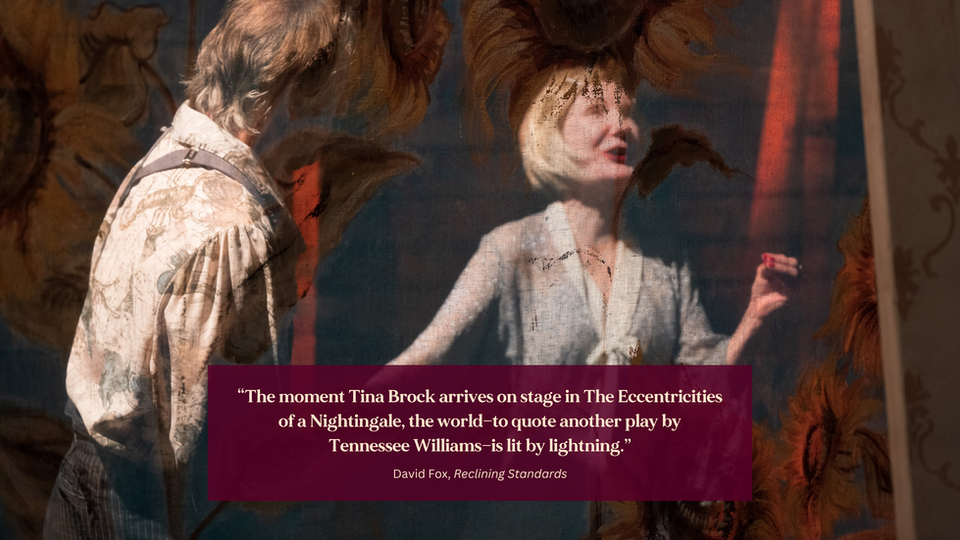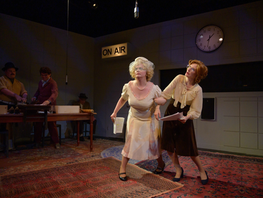Tina Ann Brock
SAG-E | AEA
"Poised, Precise with a Dash of Wacky"

The strong, independent vibe of Laura Dern

The eccentric, kooky feel of Swoosie Kurtz

The class, style and stamina of Lesley Manville
Tina In Action
About Me
Award-Winning Character Actress
Producing Artistic Director, The Idiopathic Ridiculopathy Consortium
Medical Education Professional
Tina Ann Brock is an award-winning American stage, screen and television actress. A St. Louis native, she is the co- Founder and the Producing Artistic Director of The Idiopathic Ridiculopathy Consortium, a critically acclaimed theater specializing in existentialist works by authors of the Theater of the Absurd, celebrating its 18th year in 2023. Since 1991, Tina has directed over 60 stage productions for the IRC and other area theaters.
She has lectured on directing absurdist plays at Yale University, the University of Pennsylvania, Ursinus College and Temple University.
Tina has performed in over 50 stage productions, and enjoys particularly the work of Tennessee Williams, Samuel Beckett, Franz Kafka and William Inge. She has played the lead in a pilot for a television series, in dozens of regional and national television and voiceover commercials, and in a growing number of independent films.
Tina studied Journalism and Dance at the University of Maryland.
She combines her performance and directing background with over 30 years’ experience in Medical Education and training with The National Board of Medical Examiners, the University of Pennsylvania, Temple University, University of Virginia and Drexel Medical College.

.jpeg)
Tina formerly held posts as Public Information Officer, Development Associate and Special Projects Manager at WHYY, Inc. the PBS/NPR affiliate in Philadelphia, where she has served as an on-air fundraising host/spokesperson. She was the creator and host of Into the Absurd, A Virtually Existential Dinner Conversation, an arts and culture Zoom interview and podcast series, featuring 60 episodes from 2020 - 2022.
Tina is the recipient of the 2018 Barrymore Award for Best Supporting performer for her role as Catwoman in By the Bog of Cats by Marina Carr, produced by Irish Heritage Theatre.
A native Midwesterner, Tina shuttles between Philadelphia, where she has lived for 30+ years and New York City for the past 5.
Media and Reviews
Headshots
Interviews
Get In Touch
REPRESENTATION
Bonafide and Emerging Artists (BEA)
Swain-Taylor Agency
Commercial:
Eris Talent Agency
AMA Talent Agency















































